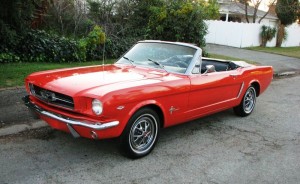I was taking the on-line spelling quiz on Merriam-Webster.com and was shocked to discover my kid had outscored me. It came down to the word indispensible. Except that it is really spelled INDISPENSABLE. I thought I had a pretty good ear for the difference between those two ways of spelling, but it turns out that I was right to be confused. I thought there was a rule that when the root word (dispense) ends with an e, the suffix is -ible. Not in this case. There is no good way to learn whether a word will end in -ible or -able. As with all other English practices, it makes no sense at all, and you just have to memorize all 1,285 of them.
Not that English apologists don’t try to give you some rules to follow anyway.
The idea is that -able words have the word able attached to the root, because that root is able to be done. Example:
When Luger Axehandle, the Texas architect, was asked whether the Houston baseball stadium could be enclosed back in the 1960s, he famously said, “Roof a stadium? That stadium is very roofable.” And the Astrodome was born.
The -ible words supposedly are derived from a very different source: the ending of the word possible is grafted onto a root word. Example:
It is totally possible to prank my baby sister. She is so gullible.
Except I’m not sure what the root word gull means in this context. (OK, Merriam-Webster.com says that gull means to trick somebody. They also say gullable is an acceptable spelling, so what are all these rules about? I’m not gulling you about this.)
Source: Dead Languages
I don’t get the distinction between able and possible. Maybe it has something to do with that weird distinction between may and can. To me they have the same meaning.
The Grammar Police try to justify keeping these two spellings that sound alike and have no difference in meaning by blaming it on the language of origin. They say -able words came from one source and -ible words came from another, so we are stuck with how the foreigners spelled them.
-able words came from French and Latin.
And in contrast, the -ible words came from (wait for it) French and Latin.
So French and Latin originally had this problem, and we just borrowed it from them without looking under the hood first. That’s what we get for borrowing so many words from Dead Languages.
French is a Dead Language? According to its obituary, French died on February 22, 1635, when the Académie française was established to officially regulate the French language. Their job is to set rules as to what words are French and which are not, as if language is invented and controlled by regulatory bodies instead of by the people who speak and write. As soon as French was taken away from the French people, it was killed and became a Dead Language like Latin. This is confirmed by the motto of the Academy, À l’immortalité (To immortality.”) Only the dead achieve immortality.
This origin story makes no sense as an excuse, or even a guide for how to get the spelling right. What else do the Grammar Police have that can help us?
If the stem (the main part of the word that comes before -able or -ible) is a complete word in itself, then the ending is nearly always -able. A simple test is to take away the suffix – does the word still exist as an English word?
That doesn’t help at all with:
response responsible
digest digestible
convert convertible
The only thing that is reliable at all is statistics. About 70% of all the -able/-ible words end with -able. That gives us the cop-out guideline that suggests if we are desperate, always guess -able, and most of the time we will be correct. At least 70%, which in the high school I went to, will get you a solid D-minus.
To the Grammar Police who won’t fix our crazy language, and yet insist that it is based on learnible (learnable?) rules, I say, quoting Daffy Duck, “You’re despicable.”
